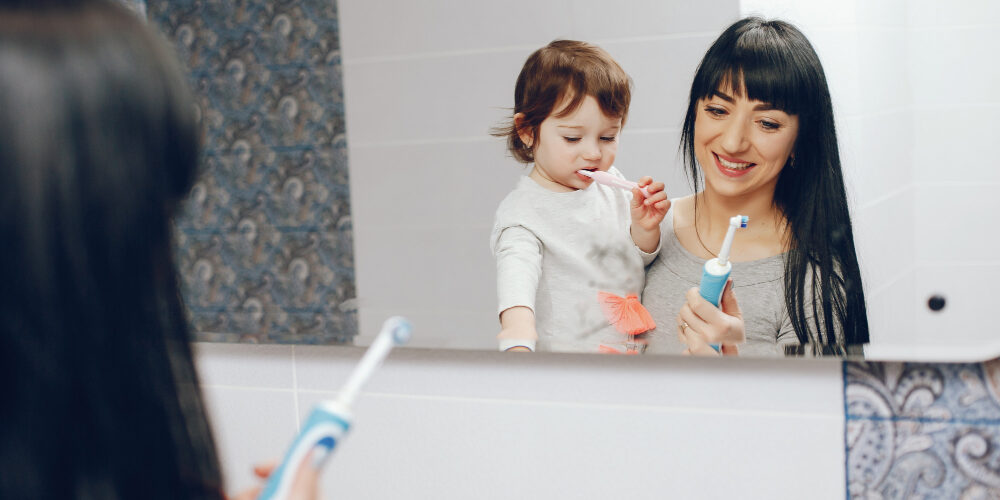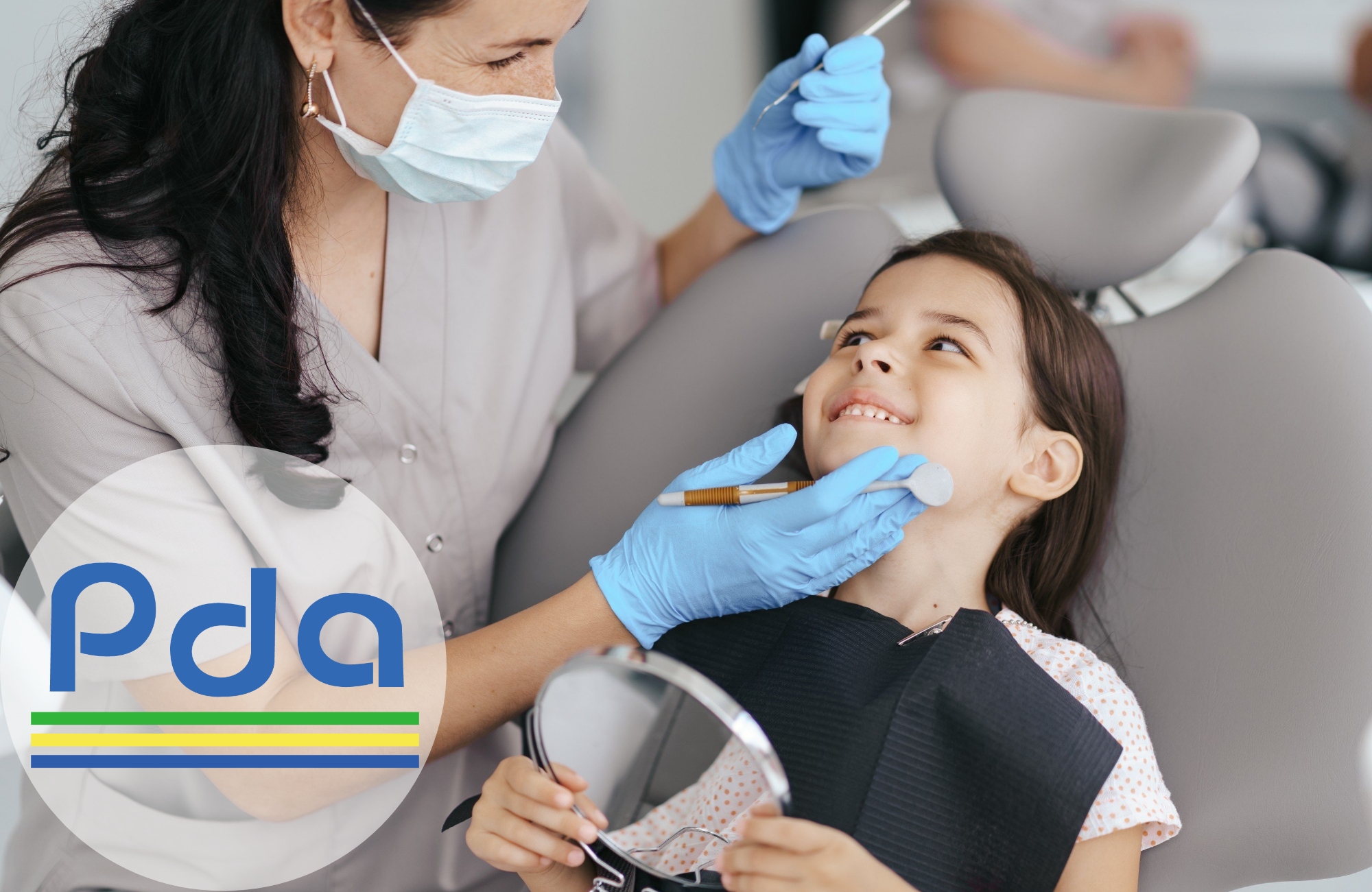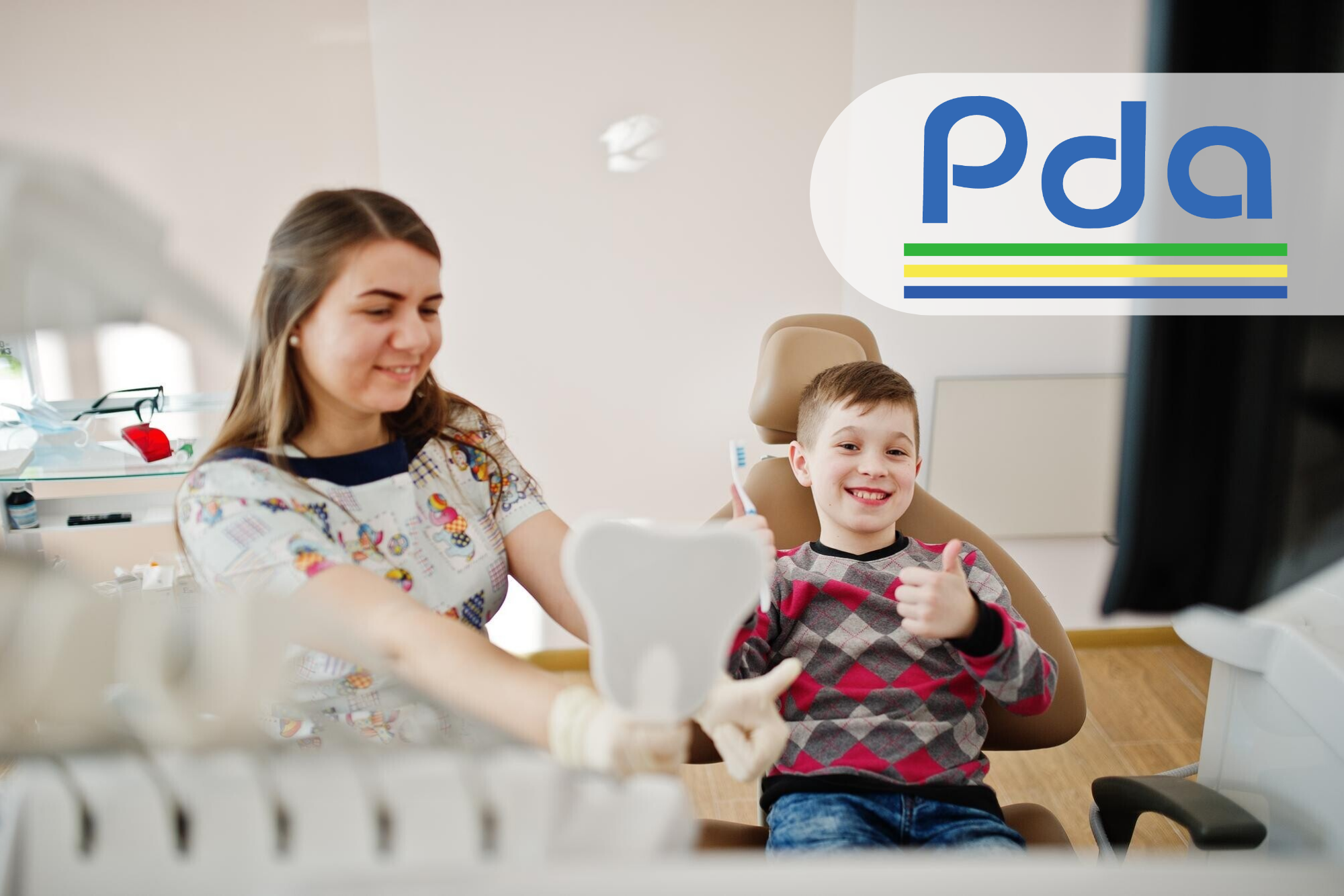Selecting the appropriate toothbrush for a child is paramount to ensure oral health. It significantly influences their dental hygiene and shapes their long-term attitudes toward brushing. Toothbrushes should be appropriate for a child’s age and dental development stage. This guide, backed by the expertise of the best pedodontist Midland Park, will help parents understand the differences between manual and electric toothbrushes and recommend choosing the best toothbrush for various ages.
Infants and Toddlers (0-2 years)
Toothbrush Type: Soft-bristled, small-headed
Manual Toothbrushes: An infant and toddler toothbrush should have a small head and soft bristles. At this stage, the primary goal is to gently clean the baby’s teeth and massage the gums, which can also help relieve teething discomfort. Brushes designed with a small handle are suitable as they fit well in a parent’s hand.
Electric Toothbrushes: While not necessary for this age, electric toothbrushes are available for toddlers. These can be a good option if the child enjoys the sensation, as it can make the transition to more active brushing easier as they grow. It is crucial to ensure that the brush head is the appropriate size and that the bristles are very soft.
Recommendation: Choose a manual toothbrush with a small, oval head to prevent gum damage. Brands specializing in infant oral care often design brushes that are easier for parents to manage during brushing time. Using a toothbrush with a large head or stiff bristles can potentially cause gum irritation or damage, so choosing the right size and type of toothbrush for your child is essential.
Preschoolers (3-5 years)
Toothbrush Type: Soft-bristled, character-themed
Manual Toothbrushes: Children are more involved in brushing their teeth at this age, although supervision is necessary. A toothbrush with a character from a favorite cartoon or story can make brushing more fun and encourage routine. Look for a brush with a chunky, non-slip handle that is easier for small hands to grip, ensuring a fun and practical brushing experience.
Electric Toothbrushes: Electric toothbrushes can be advantageous for preschoolers as they often incorporate timers that ensure the child brushes for the full two minutes recommended by dentists. Many also feature musical tunes or lights, which enhance the appeal and can improve the duration and quality of brushing.
Recommendation: For those transitioning from manual to electric, it can be beneficial to have both types available. That allows the child to familiarize themselves with the vibrations of an electric toothbrush while having the manual as a backup.
School-age Children (6-12 years)
Toothbrush Type: Soft to medium-bristled, with ergonomic features
Manual Toothbrushes: School-age children can brush their teeth with minimal supervision. Toothbrushes should have ergonomically designed handles that fit better in their still-growing hands. When a child brushes gently, a pediatric dentist may recommend introducing medium bristles.
Electric Toothbrushes: At this age, electric toothbrushes can be highly beneficial due to their efficiency in removing plaque and minimizing the required effort. Models designed for this age group often have interchangeable heads, allowing customization according to the child’s needs and preferences.
Recommendation: An electric toothbrush with a pressure sensor is ideal, as it can alert the child if they are brushing too hard, thus protecting their gums and enamel from damage.
Teenagers (13+ years)
Toothbrush Type: Soft to medium-bristled, adult-sized
Manual Toothbrushes: Children can use adult-sized toothbrushes by their teenage years, but it’s crucial to stick with soft to medium bristles to avoid damaging the gums and enamel. Toothbrushes with varied bristle heights can provide a more effective clean by adapting to the contours of each tooth.
Electric Toothbrushes: Many teenagers enjoy using electric toothbrushes, particularly those with features like Bluetooth connectivity. These toothbrushes can track brushing habits and provide feedback via a smartphone app, which can encourage better brushing habits through interactivity and engagement.
Recommendation: Teenagers should be allowed to choose their toothbrushes, which promotes personal preference, responsibility, and independence in dental hygiene practices. It is often beneficial to consult with the best pedodontist Midland Park to get personalized recommendations that cater to specific dental needs, ensuring the best care for your child’s oral health.
Benefits of Electric Toothbrushes for Children
Effectiveness: Studies have shown that electric toothbrushes reduce plaque and gingivitis more than manual toothbrushes.
Ease of Use: Electric toothbrushes require less manual effort, which is especially beneficial for children who might lack the talent to brush effectively with a manual toothbrush.
Fun Features: Many electric toothbrushes designed for children include fun elements such as games, music, and lights, making brushing more enjoyable.
Benefits of Manual Toothbrushes for Children
Control: Manual toothbrushes allow children to feel the pressure they are applying, helping them learn the proper technique.
Accessibility: Manual toothbrushes do not require charging or batteries, making them more versatile and always ready for use.
Affordability: Manual toothbrushes are generally less expensive than electric ones, making them easily replaceable and accessible to more families.
Conclusion
Choosing the right toothbrush for a child at each stage of their development is vital for establishing good oral health habits. Whether manual or electric, the best toothbrush is one that the child will use regularly and effectively. It’s important to note that while manual toothbrushes are generally safe and effective, they may only be suitable for some. Some children may find it difficult to brush effectively with a manual toothbrush or need help applying the right amount of pressure. If you are looking for expert guidance and care, consider booking an appointment with the best pedodontist Midland Park at pdaridgewood.com. Their experience and specialized care can ensure your child receives the best possible support for their dental health.





